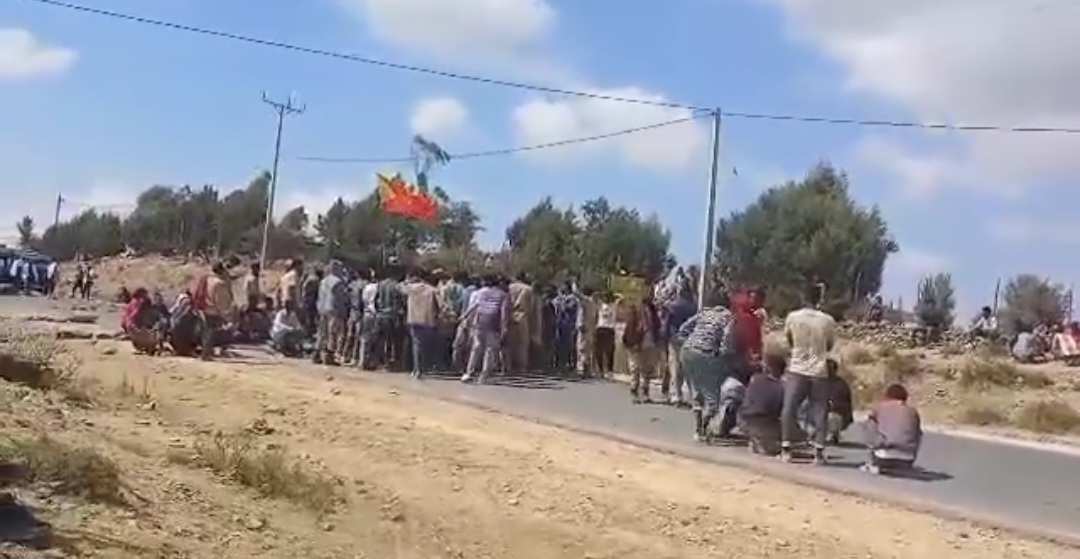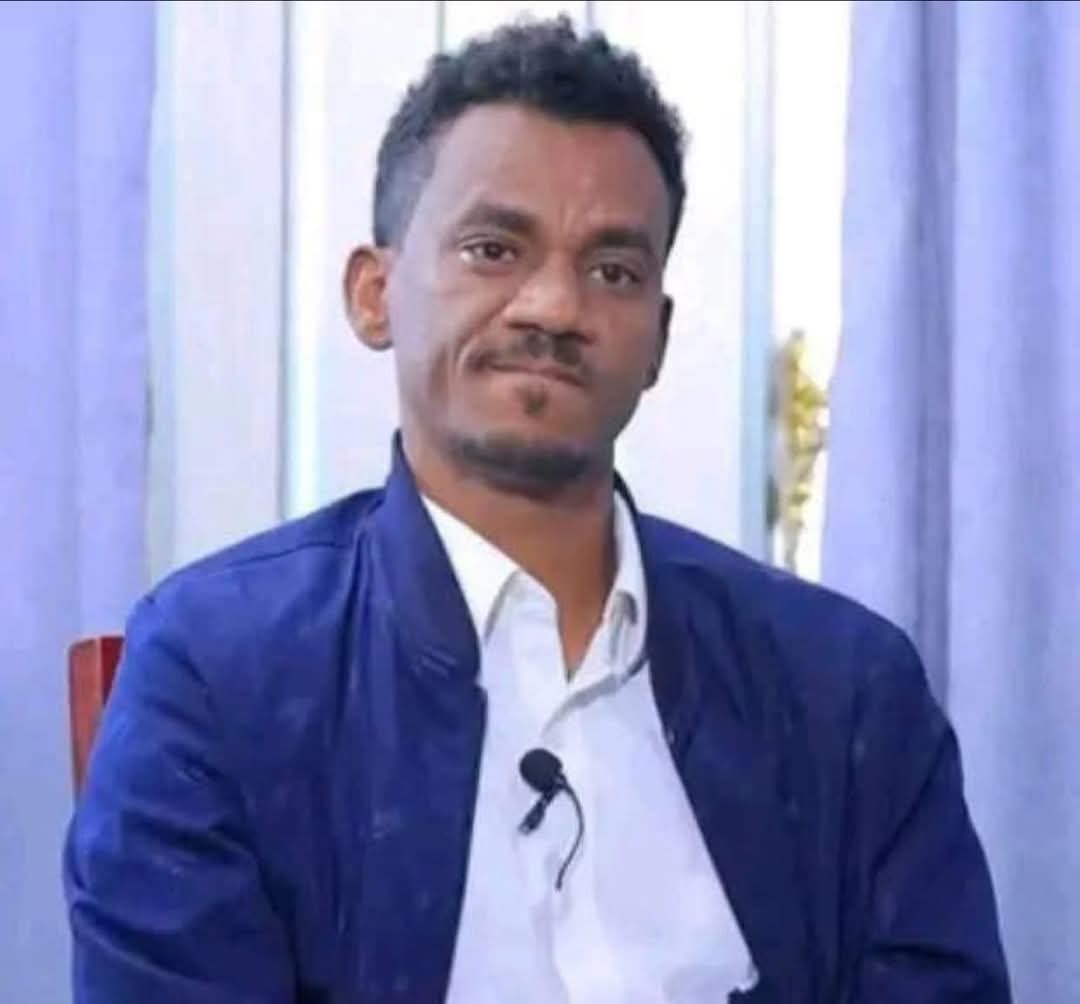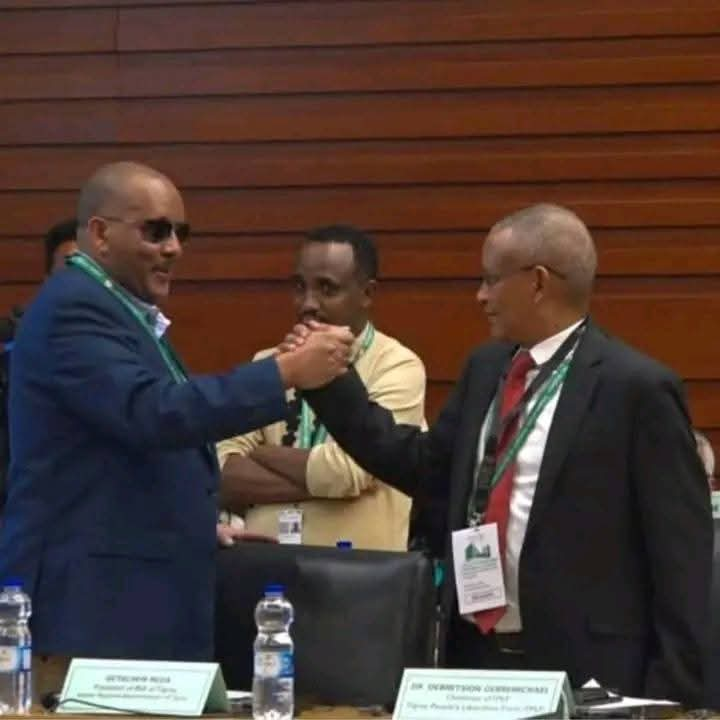Mekelle/Tel Aviv/Nairobi/Pretoria/London
Tigray’s Below-Core Uprising: The Beginning of the End of the TPLF Power Dynasty
By Horn of Africa Geopolitical Review ✦ Special Edition
- Introduction: The Unprecedented Below-Core Movement
A silent storm is gathering across Tigray. For the first time since the genocidal war ended, the Below the Core members of the Tigray Defense Forces (TDF) the younger, lower-ranking soldiers and war veterans are openly challenging the entrenched military political elite that has dominated Tigray for decades.
From Mekelle to Adigrat, Shire, Aksum, and Abi Adi, spontaneous demonstrations, road blockades, and coordinated demands have erupted. These movements, spreading like wildfire across all military units and divisions, are led by thousands of young fighters who sacrificed everything during the war but now live in poverty, exclusion, and neglect.
Their voices echo one message—clear, unified, and uncompromising:
“We fought for Tigray’s survival, not for the return of corruption and inequality.”
This uprising marks a generational shift: a collective refusal to accept a system that rewards corruption and punishes sacrifice.
- The Economic Despair: Hunger in Uniform
The average Below Core soldier earns a meagre 4,000 birr per month—an amount that cannot even sustain the most basic human needs. A single loaf of bread, known locally as the seven-piece loaf, costs around 20 birr. For many veterans, feeding their families has become a daily humiliation.
In sharp contrast, the Above Core—a small circle of warlords and political generals still loyal to the defunct TPLF oligarchy—enjoys monthly earnings exceeding hundreds of thousands of birr, supplemented by illicit profits from illegal gold mining and smuggling networks.
This staggering disparity is not merely economic; it is a moral collapse, a betrayal of revolutionary ideals, and a historical injustice. The very movement that once promised equality and dignity has turned its heroes into beggars in uniform.
- The Anatomy of State Capture in Tigray
Tigray’s interim governance structure, still infiltrated by loyalists of the old regime, has become a textbook example of state capture—where unaccountable elites manipulate institutions, resources, and laws to serve private interests rather than the public good.
This capture is visible across the region:
Gold-rich zones such as Asgede Tsimbla, Shire, and Adi Daero are controlled by military–political cartels, protected by former TPLF commanders.
The regional economy caters to a narrow network of corrupt officers and businessmen, while war-displaced families and unpaid veterans live in destitution.
Justice institutions are paralyzed—intimidated, silenced, and co-opted by elite influence.
The liberation legacy of Tigray has been transformed into a feudal-caste-like hierarchy, where revolutionary equality has been replaced with authoritarian entitlement and clan privilege.
- The Unequal Yoke: Two Tigrays, Two Realities
The divide between the Above Core and Below Core factions of the TDF has become emblematic of a broader societal fracture—two Tigrays unequally yoked.
One Tigray lives in privilege: the generals, ex-party elites, and their families control trade, contracts, and smuggling routes.
The other Tigray lives in hardship: the young fighters, war widows, and displaced civilians surviving on bread, debt, and fading hope.
The metaphor of being “unequally yoked” captures this imbalance perfectly. Like two mismatched animals forced to pull the same plough, one side carries the burden while the other dictates direction. The result is a crooked, unsteady path—symbolic of Tigray’s current dysfunction.
This imbalance, institutionalized by the TPLF’s hybrid system of clanism and caste politics, perpetuates inequality, injustice, and division. It ensures that bloodline and loyalty—not competence and merit—determine power and privilege.
- Caste, Clan, and the Corruption of Revolution
What began as a revolutionary struggle for equality has decayed into a caste-like, clan-driven system where kinship outweighs competence and political loyalty eclipses justice.
The TPLF’s old guard now functions as an aristocracy of survival:
A small noble class, the “Above Core,” monopolizes wealth, contracts, and authority.
A vast common class, the “Below Core,” bears the sacrifices, only to face neglect, poverty, and silence.
In the tragic irony of history, the former liberators have become internal colonizers—a privileged caste exploiting the very people they once vowed to liberate. The TPLF’s moral legitimacy has eroded, leaving behind a hollow political shell sustained only by coercion and propaganda.
- The Gold Curse: How Illicit Wealth Fuels Corruption
The illegal extraction of gold in western and central Tigray has evolved into the financial backbone of a criminal political economy. Billions of birr worth of gold are smuggled through Sudan and Gulf networks, often under the protection of rogue commanders and ex-military officials.
This “resource capture” drains Tigray’s economic potential, financing:
Political destabilization campaigns,
Clan-based militia networks, and
Elite enrichment schemes that undermine the authority of the legitimate Tigray Interim Government.
As ordinary citizens and war veterans sink deeper into poverty, the Above Core elite continues to hoard wealth, feeding a cycle of corruption and resentment that threatens Tigray’s fragile stability.
- The Political Implications: The End of a Dynasty
The expanding unrest among TDF’s Below Core ranks signals a potential endgame for the TPLF’s decades-old dynasty of power.
No regime survives after losing the loyalty of its soldiers—the very defenders who once upheld its authority.
This generational awakening transcends mere economic protest. It represents a political and moral reckoning, demanding:
Accountability for corruption, abuses, and war crimes;
Fair compensation, welfare, and reintegration for veterans;
The demilitarization of political power;
The dismantling of clan-based favoritism; and
The creation of an inclusive, merit-based political order.
If these demands are ignored, Tigray risks descending into a new internal implosion—a civil fracture born from betrayal within.
- Lessons from History: Nonviolent Resistance as a Catalyst for Change
Global evidence shows that nonviolent resistance movements are twice as likely to succeed as armed conflicts. Movements that mobilize even 3.5% of the population have never failed to achieve meaningful change.
The Below Core Movement, if disciplined, peaceful, and strategic, could become Tigray’s “3.5% moment”—a turning point toward justice, reform, and renewal.
The six-month reign of corrupt generals such as Tadesse Worede, marked by greed and coercion, stands as a moral lesson:
“Those who rule through deceit and repression shall fall by the same instruments they wield.”
This uprising, if guided by ethical leadership and strategic vision, could restore the moral center of Tigray’s political identity.
- The Way Forward: Restoring Integrity and Justice
Tigray’s survival now depends on comprehensive political, military, and ethical renewal.
Reform must begin with truth and accountability:
Dismantle all remnants of TPLF’s patronage networks.
Empower the new generation of TDF veterans with fair wages, education, and leadership opportunities.
Establish transparency in resource governance, especially in gold and mineral trade.
Reinstate professionalism and ethics within the defense forces.
Launch a truth and accountability process to address corruption, war crimes, and abuse of power.
Only by confronting these structural inequalities can Tigray move beyond the legacy of genocide, division, and betrayal.
- Conclusion: The Dawn After the Dynasty
The Below Core movement is not a crisis to be suppressed—it is a historical correction long overdue. It represents the reclaiming of Tigray’s conscience by the very generation that defended its land with courage and sacrifice.
The TPLF’s five-decade cycle of nepotism, deceit, and authoritarianism is drawing to a close.
What emerges next depends on whether Tigray’s current leaders have the integrity to listen, reform, and serve or whether they will be remembered as relics of a failed political caste.
“The revolution that forgets its children is not a revolution—it is a betrayal.”






